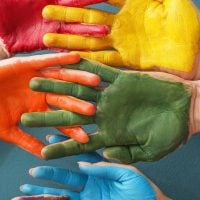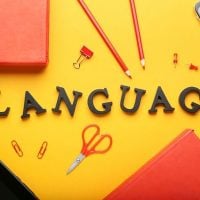Deadline: 2-Jul-21
Applications are now open for the IPDC/PMA/MAN workshop for journalists and media stakeholders from Bangladesh, India, Nepal, the Maldives, and Sri Lanka, as part of the project, “Code of Ethics to Improve Conflict Sensitive Reporting and Safety of Journalists in South Asia”.
This workshop provides the perfect opportunity for all media stakeholders to network with their regional counterparts, examine their roles in the reporting of conflict, and to devise regional strategies for covering conflict accurately, impartially, and responsibly while ensuring their own safety.
Participants will also be able to contribute towards the planned Journalist Code of Ethics on Conflict Sensitive Reporting and the Safety of Journalists, which will serve as a useful tool for those working in the South Asian media landscape, particularly as it navigates growing media freedom threats.
Join them for a three-day workshop from 28-30 September 2021 in Nepal, covering conflict sensitive journalism, journalist safety, and self-regulation. The workshop is open to practising journalists and media workers who work and reside in the target countries and have at least three years’ experience. The workshop is also open to media stakeholders working in a media-related organisation, such as press councils and associations, non-governmental organisations, and regulatory bodies.
This project’s purpose is to enable media professionals to examine and review their role in the reporting of conflict, particularly ethnic and religious violence, and to devise strategies for covering conflict accurately, impartially, and responsibly while ensuring their own safety, both out in the field and online. In addition, participants attending the workshop will focus and review existing media frameworks and codes of conduct in their countries to increase their awareness of how the media industry can better utilise existing laws and policies and how they can improve these further.
Focus Areas
- The legal and policy approaches that help to protect or restore editorial independence in the region’s media sector
- how media can break down prejudice and avoid stereotypes and inflammatory reporting by adopting conflict sensitive journalism and its related skills
- Ideas for ‘peace journalism’
- The steps journalists, civil society and other stakeholders may take to strengthen self- regulation as part of accountability for independence and editorial integrity
- The impact of media capture and media attacks on freedom of artistic expression
- The availability and adaptability of codes of conduct for use within media organisations in the different countries
- How to create awareness which emphasize knowledge about and respect for the diversity of cultures and traditions
- Social media regulation for hate speech and misinformation/disinformation without revoking the right to freedom of expression
- How to end impunity against hate crimes by establishing monitoring and evaluation units in newsrooms
- Must work and reside in one of the countries that is targeted in this project, Bangladesh, India, Nepal, the Maldives, or Sri Lanka.
- Be a practicing media professional with a minimum of three years’ experience or a media stakeholder working in a media related organisation. This includes broadcasters, journalists, editorial news managers, bloggers, media academics and press council advisors.
- Be actively engaged with media content across print, broadcast, or online news. Participants may be involved in writing, photography, videography, and editing.
- Have a sufficient command of English (both spoken and written)
- Have knowledge of institutional media practices and policies within their country
- Produce examples of their work or work in their country that highlight practices of press freedom, conflict sensitive reporting, peace journalism, as well as current issues affecting journalists.
- If selected, agree to complete and submit all pre- and post-workshop exercises.
- Be available to attend the workshop for its entire three-day duration. Participants must also contribute to the compilation of the code of ethics and input feedback to the final publication.
- In the case of a physical workshop, participants must have all documentation in place to travel to Nepal. This criterion also includes adherence to COVID-19 travel requirements. If the workshop is moved online due to COVID-19 restrictions, selected participants must agree to still participate.
For more information, visit https://www.publicmediaalliance.org/registration-open-for-three-day-conflict-reporting-workshop-for-journalists-in-south-asia/









































